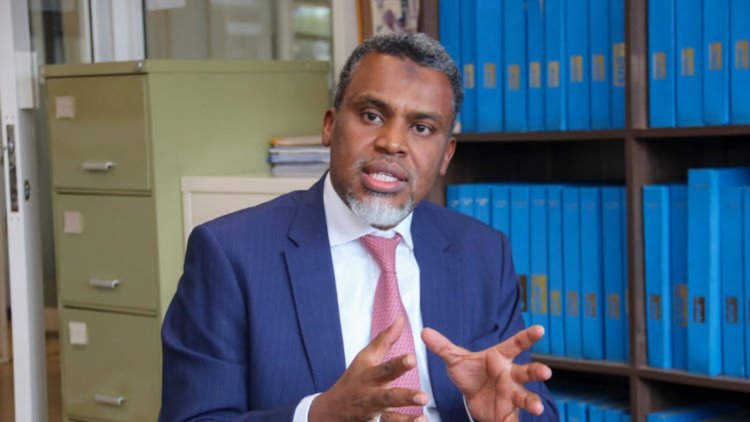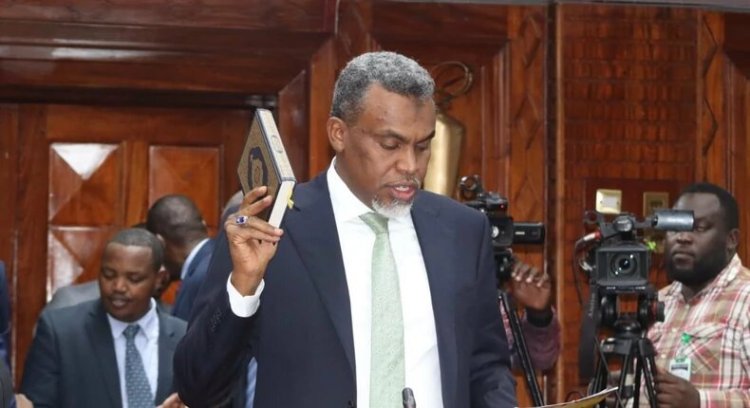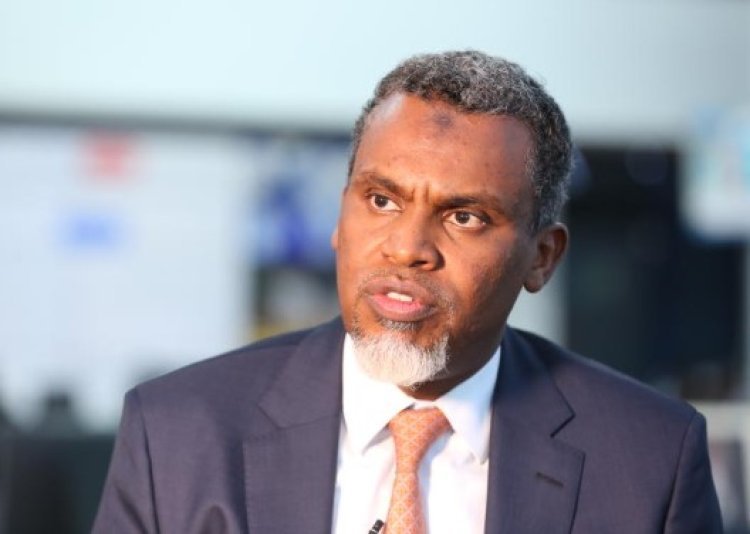NIS Vetting: Why Noordin Haji Refused To Reveal His Net Worth
Wealth declaration is anchored by the Public Officer Ethics Act of 2003, which states that every public officer must make financial declarations of incomes, assets and liabilities.

Director-General of the National Intelligence Service (NIS) nominee Noordin Haji on Tuesday, May 30 left Members of Parliament (MP) vetting him perplexed by declining to reveal his net worth.
Wealth declaration is anchored by the Public Officer Ethics Act of 2003, which states that every public officer must make financial declarations of incomes, assets and liabilities.
However, while appearing before the Defence, Intelligence and Foreign Relations Committee, Haji recognised that the matter would become an issue of national security at some point after he assumes office.

Noordin Haji during his vetting in the National Assembly on May 30, 2023. /FILE
In a significant departure from protocol, the National Assembly committee decided to extend special consideration to Haji, who serves as the Director of Public Prosecution (DPP), regarding revealing his net worth accompanied by supporting documents, before the committee.
"Honourable chair, I am going to request considering the sensitivity of the office I will hold, that I give this to your committee because it might be a national security issue at some point," he stated.
One of the MPs who were present took issue with Haji's choice of words, stating that the outgoing DPP had assumed that the committee would approve his nomination.
“I have the nominee say ‘the office that I am going to hold’. It is as if we are done with our business and we should close shop and go,” the MP put Haji on the spot, forcing him to apologise and adjust his language.
After consideration, the committee decided to break with tradition and grant Haji an exception, acknowledging the gravity of the concerns raised.
During the vetting, Haji was put to task regarding the withdrawal of multiple cases targeting senior government officials by his office.
"The constitution is very clear on the rules and powers of ODPP. A lot of these cases that have been cited and withdrawn were made independently.
"We had issues with how the evidence was passed to the ODPP. Initially, the evidence tabled showed we had sufficient evidence in most of those cases to prosecute. In some of those cases, the investigating officers presented evidence that was not complete, some were forged," he argued.
Haji further explained that the decisions lay ultimately with the court which only provided an oversight role in the withdrawal of the cases.
He was nominated for the role by President William Ruto on Tuesday, May 16 and if approved, he would succeed Major-General (Rtd) Philip Wachira Kameru who was appointed in September 2014 after an illustrious military career, by former President Uhuru Kenyatta.
He is inching towards a comeback at NIS after his six-year term as the DPP. He was previously the Deputy Director of the Counter Organised Crime Unit.







